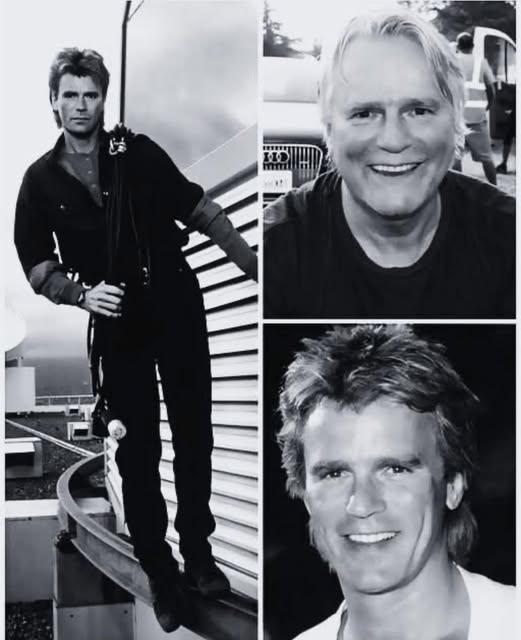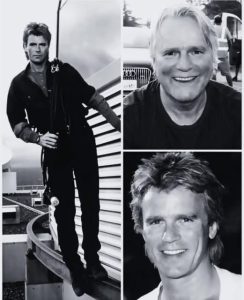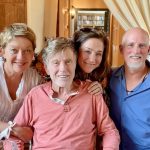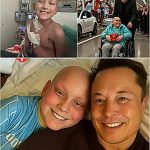Richard Dean Anderson: The Quiet Hero Who Reshaped Problem-Solving

In 1985, Richard Dean Anderson sat in a Los Angeles studio office, flipping through a script for a new ABC pilot titled MacGyver. Fresh off his role as Dr. Jeff Webber on General Hospital, Anderson wasn’t actively seeking another high-profile television role. He had already begun to feel typecast and was hesitant about taking on a network lead. However, something in the MacGyver script caught his attention. The character of Angus MacGyver, a man who relied on intelligence, resourcefulness, and nonviolence, intrigued him deeply. One moment stood out: MacGyver defusing a bomb using a paperclip and chewing gum. It wasn’t just a cool trick; it was clever, creative, and nonviolent — a kind of ingenuity that resonated with Anderson.
Producer Henry Winkler had envisioned an action hero who solved problems with his mind, not his muscles—a revolutionary concept at a time when action heroes were defined by brawn. Anderson was drawn to this vision, admitting later, “I wanted to play someone who solved problems without resorting to violence. That meant something to me.” His personal values, shaped by a childhood fascination with physics and admiration for explorers and humanitarians, aligned perfectly with this idea. 🌍🧠
Growing up in Minneapolis, Anderson was immersed in creativity. His mother was an art teacher, and his father an English teacher. This environment fostered an inventive spirit in young Richard, who spent his childhood tinkering in the basement, fixing his bike and building gadgets. This creative mindset would later define his portrayal of MacGyver. 🛠️💡

After studying drama at St. Cloud State University and Ohio University, Anderson’s life took an unexpected turn. A broken arm ended his dreams of becoming a professional hockey player, but it led him to embrace a new path—one that would prove pivotal. Anderson realized that thinking outside the box was key to overcoming obstacles—a mindset that perfectly mirrored MacGyver’s problem-solving approach. 🏒➡️🎭
As production on MacGyver began, Anderson dove deeply into the role. He collaborated closely with the writers to ensure the character’s inventions were grounded in real science, insisting that no miraculous solutions should appear on screen. To make sure everything was plausible, the show consulted with scientists at Caltech. Anderson was adamant that MacGyver’s fixes had to be logical and based on practical principles. 🧪📝
As the show gained popularity, Anderson found himself thrust into the limelight. His fan base grew rapidly, with hundreds of letters pouring in each week. Parents were particularly grateful that their children were emulating a hero who solved problems with creativity, not violence. Anderson was moved by the influence, though it also came with immense responsibility. 🌍✂️
But the role took a personal toll. The intense shooting schedule left little time for rest, and Anderson’s friends recall how he would retreat to his trailer between takes, needing time to recharge. During the second season, he confessed to a colleague that portraying a character who always had the answers was emotionally draining. “Sometimes I wish MacGyver didn’t know what to do,” he said, half-joking. Despite the challenges, Anderson remained committed to the character and the values it represented. 💭🎬

MacGyver ran for seven seasons, becoming a global hit and cementing Anderson’s place as one of television’s most recognizable stars. However, performing his own stunts took a physical toll on him, leading to a torn knee ligament and chronic back pain. Still, Anderson pressed on, driven by an internal compass that reflected MacGyver’s own resilience and determination. 🔧💪
Unlike many of his peers in Hollywood, Anderson shied away from the party scene. He preferred quiet hikes, connecting with nature, and volunteering for environmental causes. His grounded approach to fame allowed him to stay focused on the things that truly mattered to him. 🌲🌍
When MacGyver ended in 1992, Anderson had done more than just build a loyal fanbase—he had reshaped a cultural archetype. While he went on to star in Legend and Stargate SG-1, it was MacGyver who would forever define him in the public eye. Even after the show ended, Anderson continued to inspire others, speaking at schools and youth groups about critical thinking and nonviolence. His legacy was never something he anticipated when he first hesitated over that pilot script. 📚🎤
Every time Anderson saw a fan pull out a Swiss Army knife keychain, he knew MacGyver’s impact had been profound. Though he hadn’t set out to become this kind of hero, Richard Dean Anderson had quietly reshaped how a generation approached problem-solving. His legacy is a testament to the power of intelligence, creativity, and nonviolent ingenuity.











